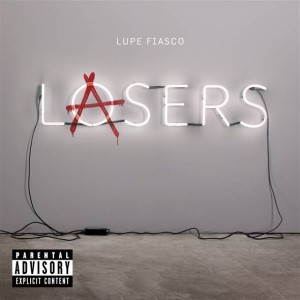Rockin' Our Turntable: Lupe Fiasco
By Tankboy in Arts & Entertainment on Mar 8, 2011 5:20PM
 To say Lupe Fiasco's third album Lasers had a difficult time getting released would be quite the understatement. Fiasco battled with his label over the disc's content, his fans rallied behind his cause, and much text, print and electronic, was dedicated to Lasers' protracted gestation period and difficult birth. So it's remarkable that the album the battle was over would end up to be the most musically focused and easily accessible of Fiasco's career.
To say Lupe Fiasco's third album Lasers had a difficult time getting released would be quite the understatement. Fiasco battled with his label over the disc's content, his fans rallied behind his cause, and much text, print and electronic, was dedicated to Lasers' protracted gestation period and difficult birth. So it's remarkable that the album the battle was over would end up to be the most musically focused and easily accessible of Fiasco's career.
Lasers is filled with tracks that would sound great on the radio and that feels so subversive since Fiasco has done no self-editing lyrically. His raps are still intelligent and hew close to his personal philosophies or self-reliance and leading through example. Admittedly this means that some of the baroque twists and flourishes from his first two albums are sacrificed but we're willing to see those go in exchange for marriage of pop and attitude that weaves its way through Lasers. So that begs the question; why did the label fight the album's release?
Fiasco said in a recent conversation with Greg Kot that the label was less than pleased with the lyrical content, which would indicate to us that labels truly have no idea what works in the marketplace any longer. Lasers is filled with songs that sound great on club sound systems so it seems ludicrous that the label would balk at Fiasco's insistence on crafting rhymes around intellectual independence instead of booties and bottles of champagne. How could anything think that something like "I Don't Wanna Care Right Now," a song that would fit so well next to Rihanna and Ke$ha on your favorite Pandora station you might at first mistake it as satire, wouldn't be successful with a mass audience? Or that "Coming Up," a song about finding strength through overcoming adversity you can really grind too wouldn't be successful in the middle of a DJ set?
In the end, Lasers is the soundtrack to a club filled with Mensa members who ain't afraid to shake some ass. While some of its musical directness may alienate older fans who prefer Fiasco's more dense arrangements we predict that this effort will end up winning him more fans in the long run. What better result could Fiasco hope for?